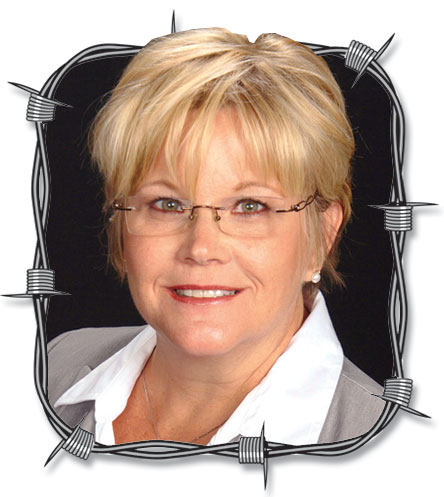The IRS issues an Audit Technique Guide to provide guidance to revenue agents in various topics, including the IRS hobby loss rule, which applies to activities such as farming, livestock and horses.
The Guide tells agents to refrain from using the term, "hobby loss," and instead refer to "activities not engaged in for profit." The Guide is over 50 pages long and covers many important details. The guide is available on the Internet by searching for "Market Segment Specialization Program." Anyone facing an audit should read it, and it is a good resource for CPAs as well.
The overall theme is putting the taxpayer's venture "under the microscope." In any farming, livestock or horse activity if there is a history of losses, the IRS will want to see significant evidence that the activity has been operated in a businesslike manner.
It is hard for farmers, livestock ranchers and horse breeders to withstand IRS scrutiny if there is a history of losses. For general farming, such as citrus crops, wheat, corn or soybeans, taxpayers usually do better, particularly if they are full time farmers. But in other areas, such as tree farming and greenhouses, taxpayers usually have difficulty under the hobby loss rule if there are no profits.
In horse breeding activities, evidence that only a few horses have been sold, and at fairly low prices, points to a lack of profit motive. On the other hand, consultations with experts in the industry on how to improve one's profit picture (and following the advice) points to a businesslike approach.
Simply maintaining lists of and receipts for expenses without any further cost accounting or analysis does not reflect good business practices, according to Audit Technique Guide and Tax Court cases. One Tax Court case noted: "The purpose of maintaining business books and records is more than to 'memorialize for tax purposes the existence of the subject transactions'" and includes providing a "means of periodically determining profitability and analyzing expenses."
It is also important in horse activities to keep detailed monthly expense records for each animal so as to keep track of expenses on a per-horse basis.
Under the Audit Technique Guide revenue agents invariably are going to ask for the taxpayer's "business plan," if one exists. Usually everyone has some type of plan in their heads, but not in writing. This did not used to be an important element in hobby loss cases, but presently it is. The business plan should be reviewed by a tax professional familiar with the industry. There are many books available to help write a business plan. While it might seem like a silly waste of time, it is actually helpful because it requires you to analyze various details and consider cost projections into the future. In any event, anyone who does not have a written business plan and who has a history of losses will find it difficult to pass IRS muster.
John Alan Cohan is an attorney who has served the farming, livestock and horse industries since 1981. He can be reached at 1-866-532-1960.





